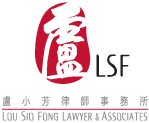Best Gaming Lawyers in Macao
Share your needs with us, get contacted by law firms.
Free. Takes 2 min.
List of the best lawyers in Macao, Macao
About Gaming Law in Macao, Macao
Macao is globally renowned as the “Las Vegas of Asia,” with its gaming industry forming a critical pillar of the local economy. Gaming in Macao is highly regulated and has a rich legal tradition, shaped by both its Portuguese colonial heritage and contemporary local statutes. The legal framework covers casinos, betting, lotteries, and other forms of gambling, making Macao a unique jurisdiction with distinct gaming laws and practices.
Since gaming liberalization in 2002, Macao's legal environment has supported both local and international operators, under strict licensing and regulatory control. The government ensures compliance with all applicable statutes, aiming to promote responsible gaming and prevent illegal activities such as money laundering and organized crime.
Why You May Need a Lawyer
There are several reasons why individuals or organizations may require legal assistance in Macao’s gaming sector:
- Applying for gaming licenses: The application process is detailed and complex, involving substantial documentation and regulatory checks.
- Compliance: Operators must adhere to local gaming laws, anti-money laundering requirements, and responsible gaming obligations.
- Dispute resolution: Disagreements between players, operators, or third parties often require legal mediation or litigation.
- Mergers and acquisitions: Legal guidance is essential during casino purchases, merges, or restructuring.
- Employment matters: Gaming staff and operators must comply with labor regulations and contract laws.
- Criminal matters: Allegations of fraud, cheating, or other gaming-related crimes necessitate legal representation.
- Intellectual property protection: Protecting game technology, branding, and proprietary systems.
Local Laws Overview
Macao’s gaming industry operates under a robust legal framework, mainly governed by Law No. 16/2001 (Legal Framework for the Operation of Casino Games of Fortune). Here are some key elements:
- Licensing: Only licensed concessionaires and sub-concessionaires can operate casinos. Licenses are subject to government approval and periodic review.
- Types of gaming: Macao primarily allows casino gaming, pari-mutuel betting (horse and greyhound racing), and lotteries. Online gaming is currently not legalized for local residents.
- Regulatory body: The Gaming Inspection and Coordination Bureau (DICJ) oversees all operations and enforces compliance.
- Taxes: There is a hefty tax burden borne by gaming operators, primarily via gross gaming revenue taxes and other levies.
- Anti-money laundering: Strict measures are implemented to prevent financial crimes in casinos, requiring robust customer identification and reporting of suspicious transactions.
- Responsible gaming: Operators must enforce policies to promote transparency, limit excessive betting, and prevent underage gambling.
- Oversight and penalties: Violations of gaming laws can lead to hefty fines, license suspension, or criminal prosecution.
Frequently Asked Questions
Who regulates the gaming industry in Macao?
The Gaming Inspection and Coordination Bureau (DICJ) is the primary regulator, ensuring compliance with all laws and overseeing gaming establishments.
Can anyone operate a gaming business in Macao?
No, only companies that have obtained a concession license from the Macao government are allowed to operate gaming businesses, primarily casinos.
Are all forms of gambling legal in Macao?
Not all forms are permitted. The main legal gambling activities are casino games, sports betting (via licensed operators only), pari-mutuel betting, and lotteries. Online gaming is not permitted for local residents.
What is the legal age for gambling in Macao?
The legal minimum age for entering a casino and participating in gaming is 21 years old.
What are the main taxes applied to gaming operators?
Gaming operators pay a direct gaming tax on gross revenue, along with other levies and contributions required by law.
What are the penalties for illegal gambling?
Operating unlicensed gambling activities or engaging in illegal betting can lead to criminal charges, heavy fines, and imprisonment.
Can foreigners gamble in Macao?
Yes, foreign nationals over 21 years of age are allowed to enter casinos and gamble in Macao.
Does Macao allow online gaming?
As of now, online gaming for local residents is not legalized. Only authorized forms of online betting outside of general online gambling are permitted under strict supervision.
What should casino operators do to comply with anti-money laundering laws?
Operators must establish comprehensive AML programs, including customer due diligence, transaction monitoring, and reporting suspicious activity to authorities.
How can disputes with casinos or gaming operators be resolved?
Many disputes can be settled internally but unresolved cases may be brought to the DICJ, arbitration, or the local courts for resolution, with or without legal assistance.
Additional Resources
For more information or assistance related to gaming in Macao, these resources may be helpful:
- Gaming Inspection and Coordination Bureau (DICJ): The regulatory authority providing official guidance and compliance information.
- Macao Government Tourism Office: Offers useful information about gaming policies for visitors and business operators.
- Macao Trade and Investment Promotion Institute (IPIM): Assists investors and business operators in Macao’s gaming industry.
- Macao SAR Government Portal: Provides access to current laws and regulations, including updates on gaming legislation.
- Local law firms: Several reputable law firms in Macao provide expert legal advice in the gaming sector.
Next Steps
If you require legal assistance regarding gaming in Macao, consider the following steps:
- Identify your legal needs, whether it is licensing, compliance, dispute resolution, or another area.
- Gather all relevant documentation and information about your issue or inquiry.
- Contact a legal professional who specializes in gaming law in Macao. Schedule a consultation to discuss your situation in detail.
- Prepare a list of questions and expected outcomes to ensure your concerns are addressed during your legal consultation.
- Stay informed about changes in local gaming laws and regulations, as these can impact your business or personal interests.
Seeking legal guidance early helps prevent costly missteps and ensures you remain compliant with Macao’s intricate gaming laws.
Lawzana helps you find the best lawyers and law firms in Macao through a curated and pre-screened list of qualified legal professionals. Our platform offers rankings and detailed profiles of attorneys and law firms, allowing you to compare based on practice areas, including Gaming, experience, and client feedback.
Each profile includes a description of the firm's areas of practice, client reviews, team members and partners, year of establishment, spoken languages, office locations, contact information, social media presence, and any published articles or resources. Most firms on our platform speak English and are experienced in both local and international legal matters.
Get a quote from top-rated law firms in Macao, Macao — quickly, securely, and without unnecessary hassle.
Disclaimer:
The information provided on this page is for general informational purposes only and does not constitute legal advice. While we strive to ensure the accuracy and relevance of the content, legal information may change over time, and interpretations of the law can vary. You should always consult with a qualified legal professional for advice specific to your situation.
We disclaim all liability for actions taken or not taken based on the content of this page. If you believe any information is incorrect or outdated, please contact us, and we will review and update it where appropriate.









